Morriston Hospital Swansea: UK's first powered by own solar farm
- Published
- comments
The solar farm has been running for a year
A Welsh hospital has become the first in the UK to be directly powered by its own solar farm.
Officials had originally hoped the farm serving Morriston Hospital in Swansea would save about £480,000 in energy costs.
But the rise in the electricity price mean that is now closer to £1m.
Welsh NHS chief executive Judith Paget said more hospitals across Wales were "exploring the possibility of solar power".
Morriston has 720 beds, a cardiac centre and a burns department that covers a population of 10 million.
This year nearly 50,000 people used its emergency department alone.
For all those who go there, how many people consider whether the lights will be on, or whether there will be electricity to run its life-saving equipment?
Unsurprisingly, powering a hospital is expensive and leaves a large carbon footprint.
Some 3km (about 1.8 miles) down the road, Brynwhilach farm is connected to Morriston by a huge cable which runs directly from the panels to power the site.
According to the Welsh government, the NHS in Wales produces 1m tonnes of carbon emissions every year, making it the largest public sector carbon polluter in Wales.
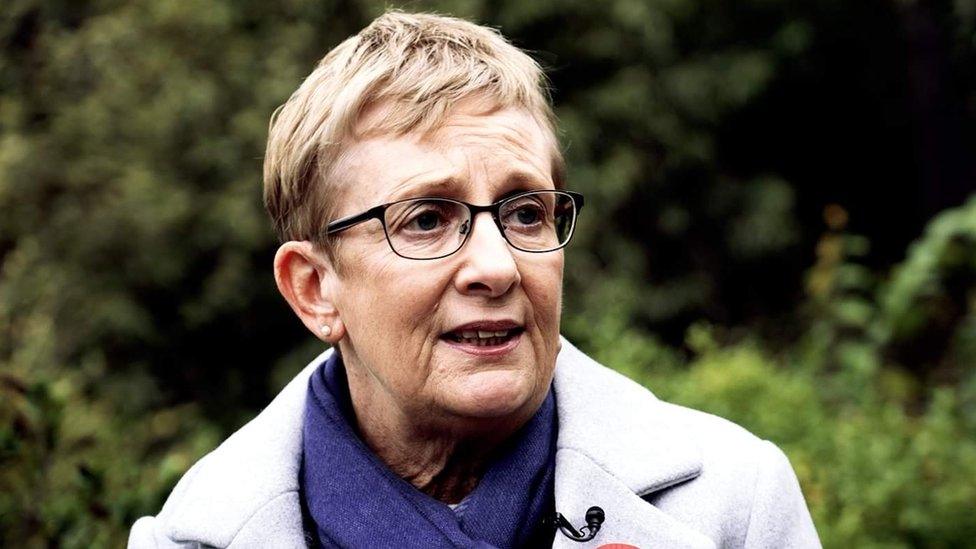
Welsh NHS chief executive Judith Paget says it has committed to reducing its emissions by 34% by 2030 and she is optimistic that is still achievable
The farm was built as part of a loan scheme set up by the Welsh government with the aim of decarbonising the public sector by 2030 and is being repaid by the health board with the money they've saved in electricity bills.
'Sells excess back'
Des Keighan, assistant director of estates at Swansea Bay University Health Board, said he had originally hoped the farm would save the hospital £480,000 in energy bills. However, the increase in the price of electricity means those savings have doubled to around £1m.
Mr Keighan said the next step was to expand the existing farm and build a battery to store the energy created.
On sunny days when the farm produces more electricity than the hospital needs, the health board sells the excess back to the grid. So far, it has been able to sell back about 450 megawatts.
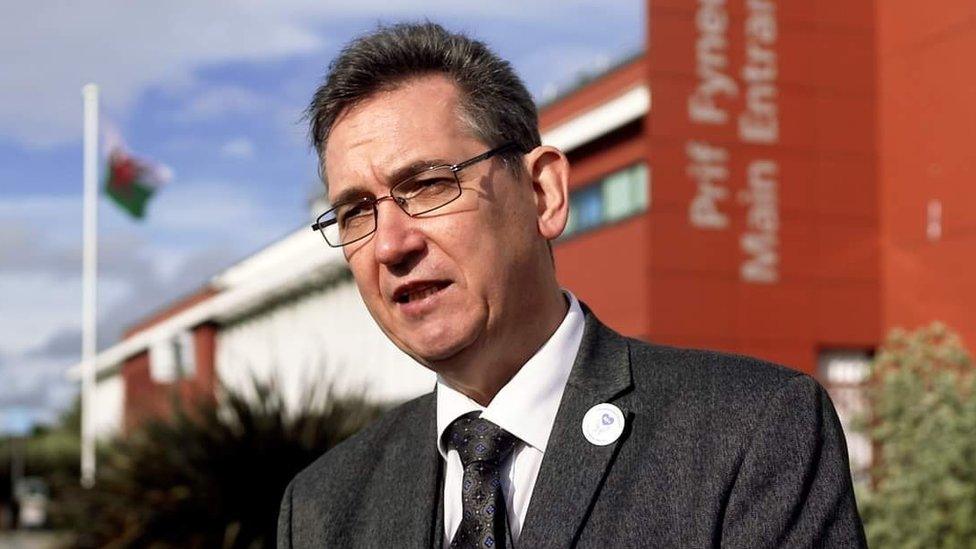
Des Keighan says building a battery to store any excess generated would allow them to maximise the savings the farm is making
He said: "Whilst we can export anything we don't use to the grid, the savings we get by using it ourselves are far greater."
The solar farm is a supplementary power source, which means that the hospital remains connected to the grid so at night when the farm isn't generating power, or if there's a fault, the hospital always has power.
Ms Paget said the NHS in Wales had committed to reducing its emissions by 34% by 2030 and she was "optimistic" this target was still achievable.
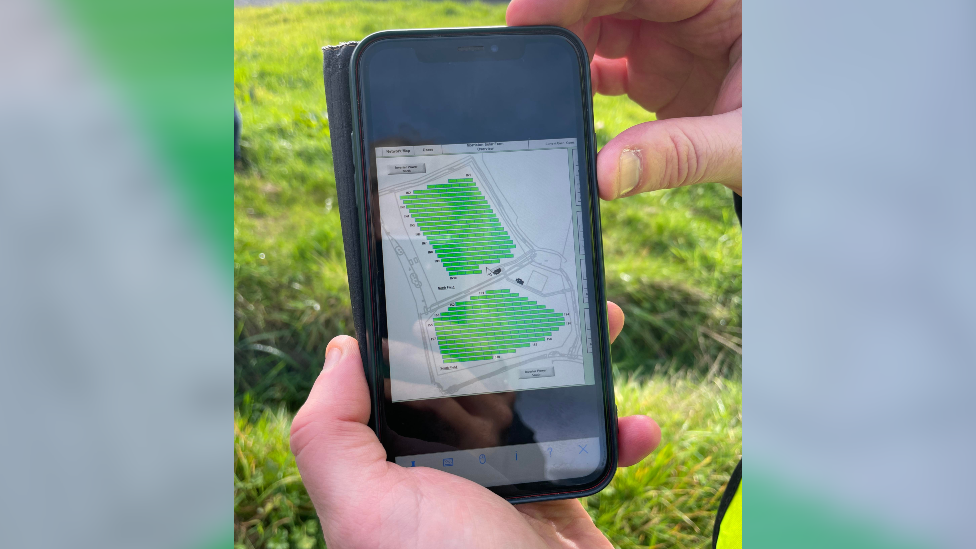
Morriston Solar Farm's system that monitors the panels for faults and measures the performance of the site
More on Wales Live, BBC One Wales, 22:35 GMT on Wednesdays, and on iPlayer

TRAPPED UNDER THE GROUND: The remarkable 54-hour-long rescue of George Linnane
IOLO: A WILD LIFE: Iolo delves into the archives from the past 25 years

Related topics
- Published18 November 2022
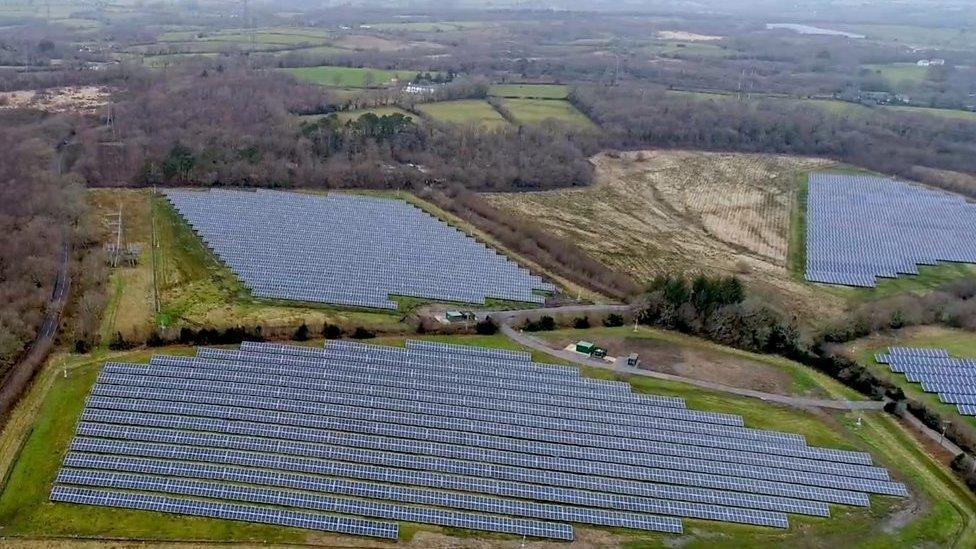
- Published3 January 2022
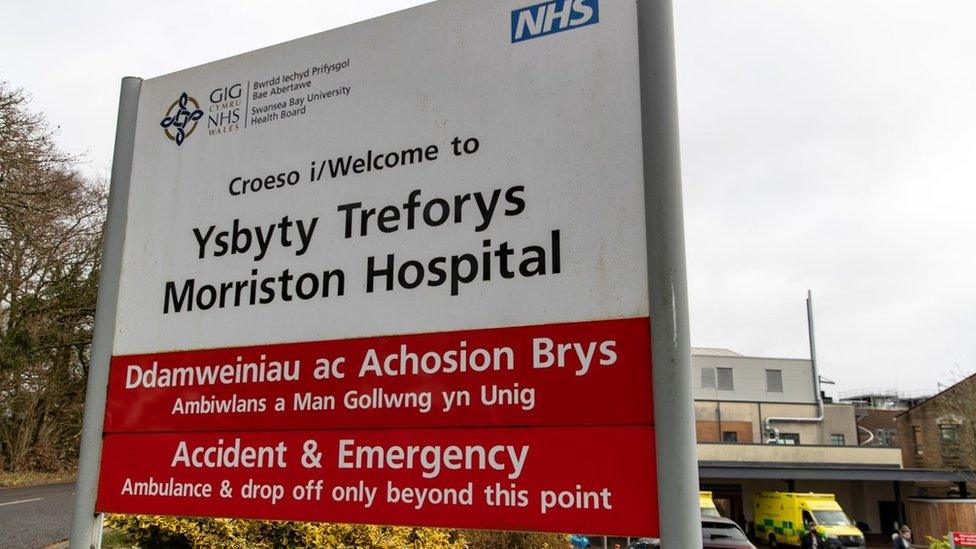
- Published31 July 2022
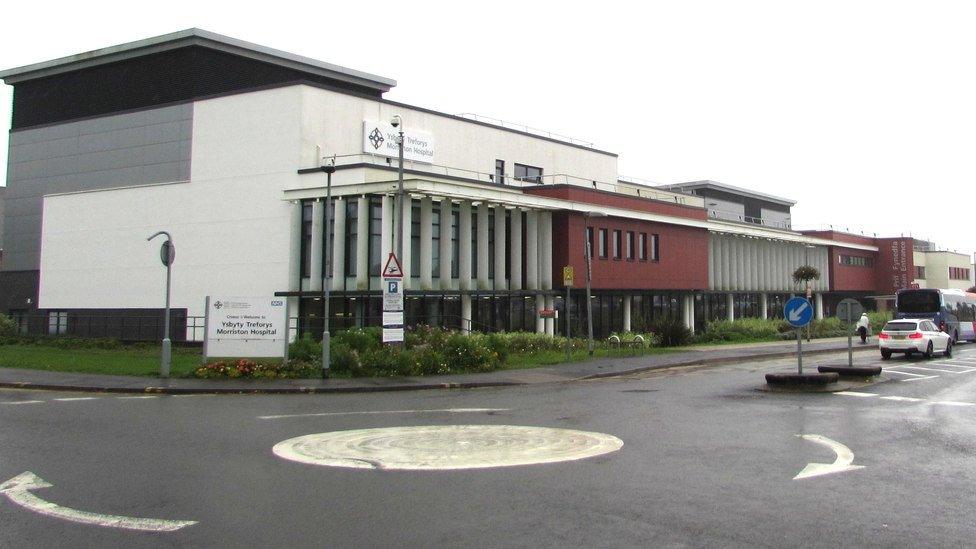
- Published13 October 2020
